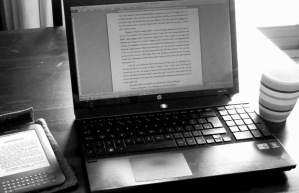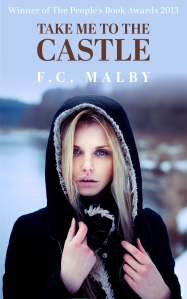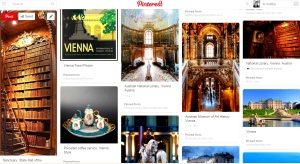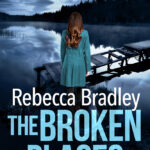I am pleased to welcome back the First Draft Q&A series which has been on a bit of a break for a few weeks. We have four great interviews coming up over the coming weeks, so stay tuned. It’s been interesting reading the responses and how each writer, as usual, does things in their own unique way.
 Today F. C. Malby is sharing her writing process with us. She trained as a teacher and has spent time teaching English in London, the Czech Republic, and in the slum communities in the Philippines. She is also a wedding photographer and her passion is travel photography. She is a novelist and a short story author who enjoys photography, art, film and travel and she likes to hear from readers and authors and to share ideas, so please get in touch with her.
Today F. C. Malby is sharing her writing process with us. She trained as a teacher and has spent time teaching English in London, the Czech Republic, and in the slum communities in the Philippines. She is also a wedding photographer and her passion is travel photography. She is a novelist and a short story author who enjoys photography, art, film and travel and she likes to hear from readers and authors and to share ideas, so please get in touch with her.
Her debut novel Take Me to the Castle was released in December 2012 and won THE PEOPLE’S BOOK AWARDS 2013 in the print category. Short story publications include The Bench, Blood Red and Bird, and short fiction longlisted in The New Writer Annual Prose and Poetry Prizes 2012. She is also published in various online journals, including Ether Books, the Puffin Review and the Flash Flood Journal.
When you decide to write something new, what is the first thing you do?
I just begin to write and see where it takes me. It’s that simple. I begin to write before even planning. I’m not a keen planner and I find I need something written down before I can flesh out the rest. I also don’t research until later. I try to get into the feel of the characters and the voice, and create a sense of place in my mind. So in a way it’s like launching myself off a diving board. I don’t scan the water, test the temperature or step in carefully. I just go. It might seem reckless, but I rarely rewrite the beginnings. They are often my favourite part of a book. I always feel a sense of excitement, like exploring a new travel destination, and it’s only later that I sometimes sense the need to change direction.
Do you have a set routine approaching it?
Not so much a routine, but after I have a good few chapters I can then begin the planning and research. I don’t know why I find it so challenging to do before I begin, but this method works for me. I like to cook without recipes and I hated paint by number pictures as a child. I’ve never enjoyed being hemmed in when it comes to creativity. I like the freedom of just beginning without the clearer direction that comes later for me.
Pen and paper or straight to the keyboard?
Straight to the keyboard. I do have a notebook, which I rarely use. I think partly due to being left-handed, I much prefer the ease and speed of typing. The frustration of my mind working faster than I can move a pen across a page is too great once I’m in the flow of writing. I also find it quite hard to read my own writing if it is scrawled quickly across a page. I’m so grateful for technology. I think a pot of ink and a quill a few hundred years ago would have turned me into an artist rather than a writer. I see random streaks of ink across a canvas.
How important is research to you?
It depends on the book. I really enjoy researching new areas, and both the current WIP and my first novel have required a certain amount of research. The first was historical fiction, so I needed to carefully research the period around the Velvet Revolution in Prague and prison conditions at the time, so that the facts were accurate. This one is entirely different. It’s a psychological thriller, which doesn’t need the same level of research, but it’s set in Vienna. As I live in the city, my research has mainly involved going back into buildings that I already know, just to check the details. It has been really freeing not having to do the same level of research and I wonder whether I’ll ever write a book that’s completely free of research in the future. I think it’s doubtful. There are almost always details that need checking somewhere along the way.
How do you go about researching?
I visit a place if I can, and I read biographies and autobiographies where needed. I read some fascinating autobiographies of people who had lived through communism for Take Me to the Castle. It was an eye-opener, I can tell you. I really enjoy non-fiction and it’s refreshing to switch between fiction and reality. I also read articles from anywhere that I can find them: newspapers, journals, magazines. I’m a sponge when it comes to information. I think you need to be as a writer, even down to just observing people. I’ve been known to keep articles for future book ideas!
How do you store everything; ideas, research, images that catch your eye?
I email myself any articles, save some on the computer, and I mainly use Pinterest for images. I’m a really visual person, especially as a photographer, so Pinterest is a fantastic resource for me. I have lots of writing boards here
for my books and short stories. I have a board for Take Me to the Castle, The Bench, Bird and Blood Red. I collect images of people and places, cafes, cities. They are all really helpful.
Tell us how that first draft takes shape?
I write, re-write, cut and add scenes. I have become more ruthless as time goes on. I’m not afraid to cut characters or scenes which don’t enhance the story. The editing and fine-tuning are a really important part of the process. I think there is a sense of a relief for a writer when a story begins to take shape, when it’s tightened and honed. It takes quite a workout sometimes to get it right.
Are there any rituals you have to do or items you must have with you while writing that draft?
Only a strong coffee and good light. I find it tough to work on dark days, so I always sit by the biggest window and I use lots of artificial light when the sun is hiding. I also need a clear space, so I usually clear away any clutter before I begin.
Does the outside world exist or are you lost to us for a period of time as the magic works?
It varies. On the more difficult days the outside world is very much still there and things clamour for my attention, but on the better days I lose all sense of time and am totally caught up in the scene. I am inside the mind of one or several characters and it can be hard to come back to reality in those delicious moments. This often happens when I work in a cafe and am away from the familiar environment of home. Zadie Smith talks about the middle-of-the-novel magical thinking and I think it can strike at an time. She says, “Magical thinking makes you crazy and renders everything possible. Incredibly knotty problems with structure now resolve themselves with inspired ease. See that one paragraph? It only needs to be moved and the whole chapter falls into place, but why didn’t you see it before?”
What does your work space look like?
It’s a large table with nothing but a mug and a computer. I need a clear space to think properly. It faces the window and I gaze out at the trees in between bursts of writing. I also like the quiet. I write to music less than I used to and I sometimes work in a cafe when I need a change of scene, or some character inspiration.
Edit as you go or just keep getting words out?
Both. I sometimes edit the previous day’s work, and on other occasions I just keep going. I try not to spend too long tidying up my writing, so that I can just get the bare bones down and laid out.
I see many writers counting words in a day. Word counter or other method of keeping track of progression?
I think it’s always in the back of my mind. I see 1,000 words as a good day, but I have written as many as a record 3,000 and as few as 100. I often glance at the word count at the bottom of the page but I don’t have an official method. I know you can use programs that set the pace for you but it’s not really how I work. I write less when the day involves more editing. I think it ebbs and flows for all of us.
So, that first draft is down. Roughly how long did it take? And what shape is it in?
Well, it’s almost there. I intersperse my novel writing with writing short stories. I hope I’ll never stop writing them as I really enjoy short fiction. I managed to write the bulk of it in over six months but the ending is taking longer than I had anticipated. The beginning is as I want it, but the rest needs editing.
 In what format do you like to read it through, ereader, paper or the computer screen?
In what format do you like to read it through, ereader, paper or the computer screen?
I read it on screen, send it to my kindle to read and print it out to read and scribble notes. So, all three. Reading your work in different formats helps you to spot mistakes more easily and it changes the way you see the work. Some people recommend reading it aloud but that’s tough going for a whole book.
What happens now that first draft is done?
Edits and more edits, once I have written the ending. I want to tighten it so that it is the best possible story that I can create.
Take me to the Castle
 Imagine a world where your every move is monitored, every contact scrutinised; a world where your mail arrives mysteriously opened and your movement restricted. What would you do if there was a knock at the door in the early hours of the morning and you knew that you would be faced with the secret police? Imagine being imprisoned for believing in freedom of speech, risking losing everything: your job, your family, your life.
Imagine a world where your every move is monitored, every contact scrutinised; a world where your mail arrives mysteriously opened and your movement restricted. What would you do if there was a knock at the door in the early hours of the morning and you knew that you would be faced with the secret police? Imagine being imprisoned for believing in freedom of speech, risking losing everything: your job, your family, your life.
What would you do to secure your own freedom?
Thank you for digging into the depths of your first draft process!
You can find F. C Malby on her website, on Amazon and on Twitter.
To read any of the previous First Draft Q&A’s you can check the list Here.
To be a part of the First Draft series, just get in touch and let me know. Along with the answers to the questions, I’ll need a profile photograph, a first draft photograph and three links that you feel are your most important.




I’ve had the pleasure of making the online acquaintance of F. C. Malby (a common love of Vienna unites us), so it’s delightful to see her featured in more detail here. As a photographer, I did expect her to find inspiration in pictures, but I had no idea to what extent!
Marina, images always inspire me: scenes, paintings, photographs. If I kept a writing journal it would be more of a collage of images, so Pinterest was designed for people like me. I hope you’re well. Vienna is beautiful in the Summer sun.
Rebecca – So nice to see this series back, and thanks for introducing us to F.C.
F.C. – Thanks for sharing your process with us. It is interesting isn’t it how the creative process works. Just one paragraph or even sentence in a different place can change everything and pull the whole story together. I wish you much success.
Thank you for your kind words, Margot. You’re right that a perfectly placed word, sentence or paragraph can make all the difference. I am a fan of Zadie Smith’s writing and, especially, her wisdom on the craft of writing.
I like that you just go with the flow… I am attempting that at the moment and it’s interesting how things turn out as you’d least expect them.